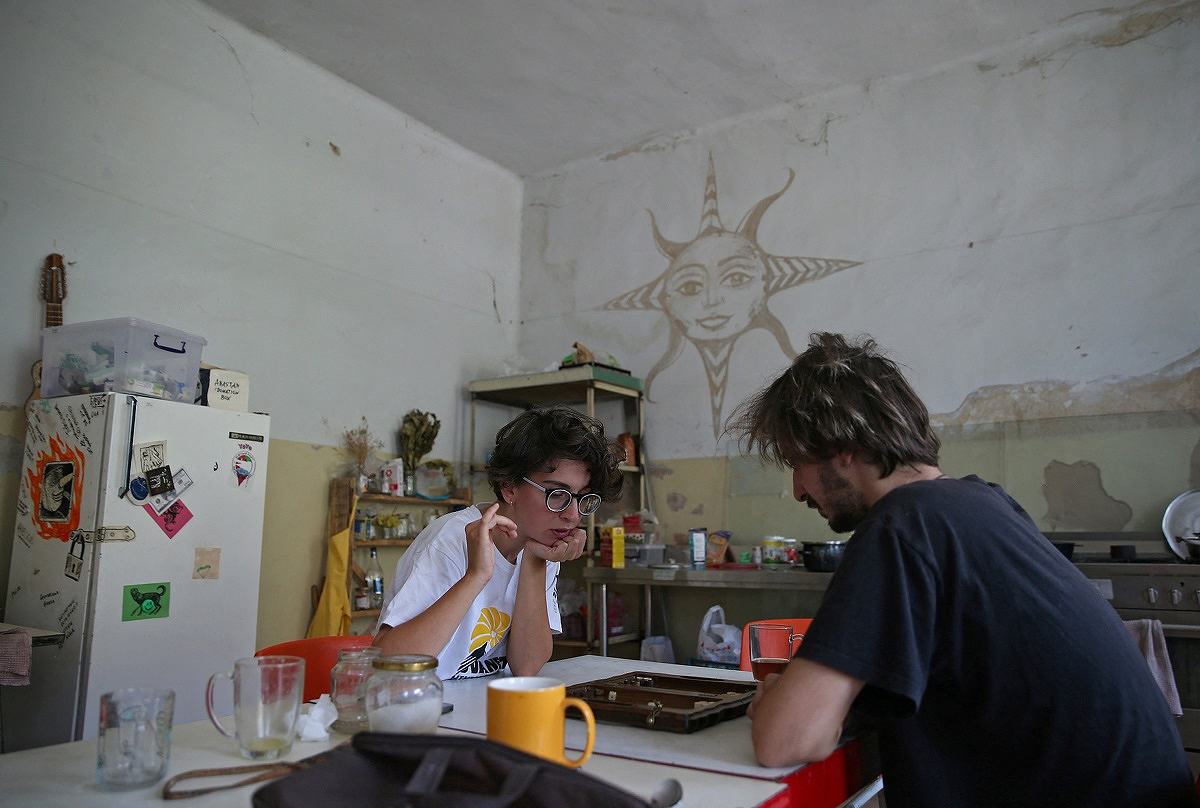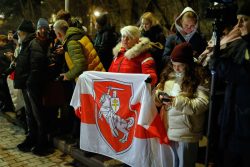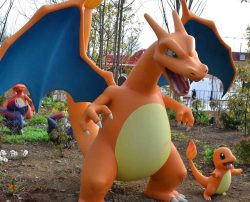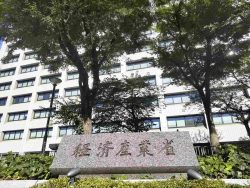
Residents of the Abastan creative space play backgammon in the kitchen, in the town of Tumanyan, Armenia, on Sept. 1.
17:30 JST, October 26, 2023
TUMANYAN, Armenia (Reuters) — A disused Armenian textile factory has become a sanctuary for artists and other emigres from Russia, Iran and Ukraine whose lives have been turned upside down by war or political turmoil.
Abandoned workshops that once produced Soviet knitwear have been turned into a creative space for painters, puppet-makers and photographers in a venture that is helping to revitalize a town in decline.
Launched in 2022, the project is called Abastan — “shelter” in Armenian — and is open to participants and guests from around the world.
Polina Ivanova, a co-founder of Abastan, said locals in the northern Armenian town of Tumanyan were at first bemused by the strangers in their midst.
“I think that for many people this was really incomprehensible: who are those people? Why are they here?
“And slowly, sometimes through public events like theater performances, sometimes through personal relationships, we get to know the people and people get to know us.”
Arghavan Majd, a painter from Iran, said she found the atmosphere “more free” in Abastan and it was easier to make personal connections.
Since Majd left Iran, the country has been convulsed by protests over the death of a young woman, Mahsa Amini, in police custody, and she said she had no intention of going back.
Torfeh Ekhlasi, a puppet maker also from Iran, said she had felt “completely paralyzed by bad news” there, “but here all the people are so alive.”
Danil, a software engineer from the Russian city of Perm, said he left after President Vladimir Putin called up 300,000 men last year to fight in the war in Ukraine.
“I simply didn’t agree with the political agenda in the country and thought that it was dangerous to stay in Russia given my views,” he said.
Abastan was established as a charity with funds from an American-Armenian philanthropist who has chosen to remain anonymous. When Reuters journalists visited last month, there were a couple of dozen people in residence — three Iranians, two Ukrainians, an Armenian, a Georgian and the rest from Russia.
Some live on savings or money from relatives, others sell their art or work online — though one Russian said that source of income had dried up.
“At first I worked remotely. And then my company was told that it was undesirable for staff to work from abroad, so they rehired me as a freelancer. Since then I haven’t received any salary yet,” Danil said.
Timofey Moskovkin, a Russian now working in a cafe funded by the charity, said local people in Tumanyan, a town of about 1,000 people, had treated him warmly.
“In spite of the general context of what’s happening in the world, and with Russia, people here are still very welcoming,” he said. “I feel good here.”
Ararat, a local Armenian man who declined to give his last name, said the arts venture had brought joy to a place that had seen factory closures, unemployment and emigration since the collapse of the Soviet Union in the 1990s.
One evening, he and his wife were walking past the factory. “We looked and saw the lights were on, it was beautiful, there was music and young people dancing,” he said.
Top Articles in World
-

China Confirmed to Be Operating Drilling Vessel Near Japan-China Median Line
-

China Eyes Rare Earth Foothold in Malaysia to Maintain Dominance, Counter Japan, U.S.
-

Japan, Qatar Ministers Agree on Need for Stable Energy Supplies; Motegi, Qatari Prime Minister Al-Thani Affirm Commitment to Cooperation
-

North Korea Possibly Launches Ballistic Missile
-

10 Universities in Japan, South Korea, Mongolia to Establish Academic Community to Promote ICC Activities, Rule of Law
JN ACCESS RANKING
-

Univ. in Japan, Tokyo-Based Startup to Develop Satellite for Disaster Prevention Measures, Bears
-

JAL, ANA Cancel Flights During 3-day Holiday Weekend due to Blizzard
-

China Confirmed to Be Operating Drilling Vessel Near Japan-China Median Line
-

China Eyes Rare Earth Foothold in Malaysia to Maintain Dominance, Counter Japan, U.S.
-

Japan, Qatar Ministers Agree on Need for Stable Energy Supplies; Motegi, Qatari Prime Minister Al-Thani Affirm Commitment to Cooperation


























